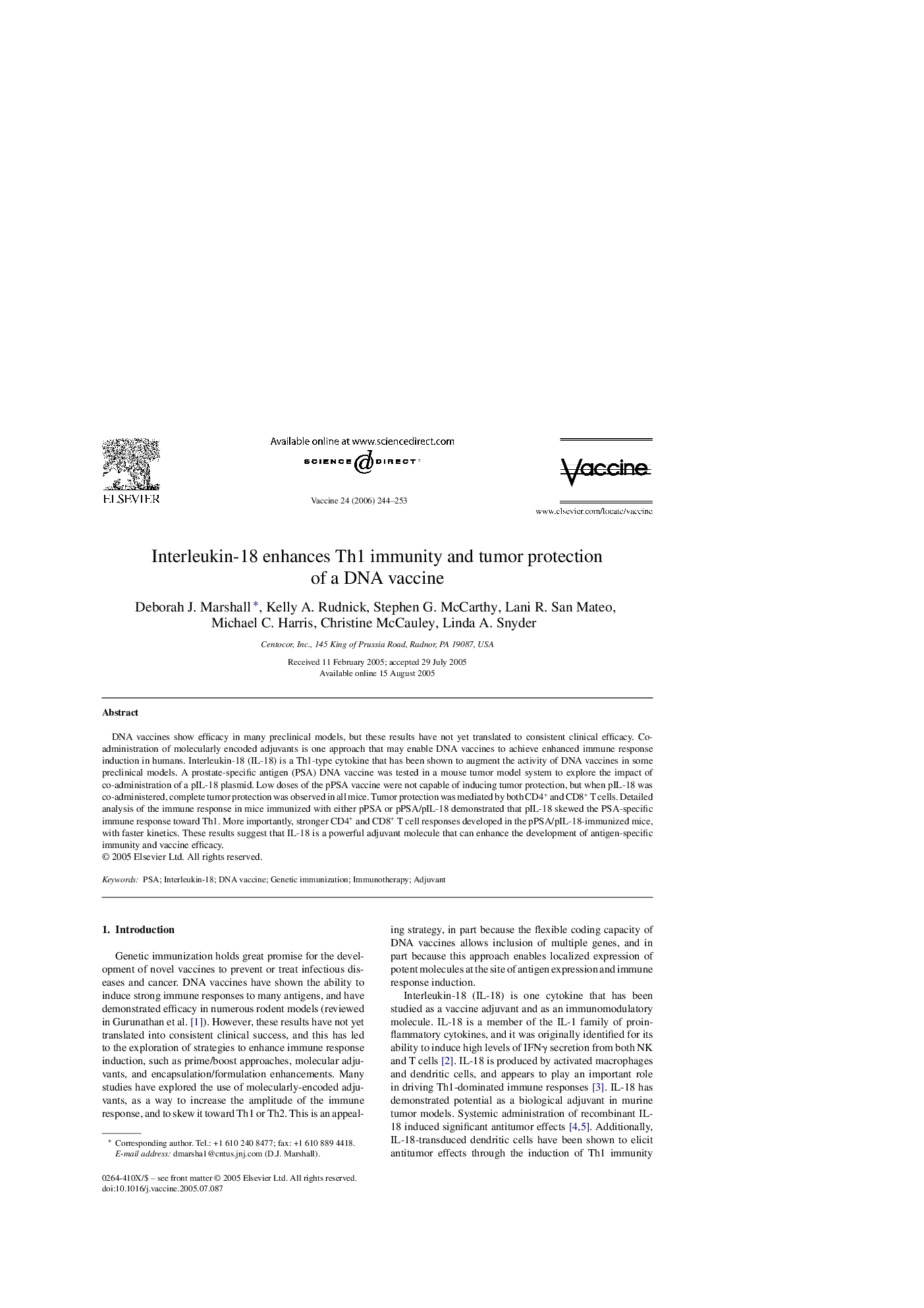| Article ID | Journal | Published Year | Pages | File Type |
|---|---|---|---|---|
| 2410054 | Vaccine | 2006 | 10 Pages |
DNA vaccines show efficacy in many preclinical models, but these results have not yet translated to consistent clinical efficacy. Co-administration of molecularly encoded adjuvants is one approach that may enable DNA vaccines to achieve enhanced immune response induction in humans. Interleukin-18 (IL-18) is a Th1-type cytokine that has been shown to augment the activity of DNA vaccines in some preclinical models. A prostate-specific antigen (PSA) DNA vaccine was tested in a mouse tumor model system to explore the impact of co-administration of a pIL-18 plasmid. Low doses of the pPSA vaccine were not capable of inducing tumor protection, but when pIL-18 was co-administered, complete tumor protection was observed in all mice. Tumor protection was mediated by both CD4+ and CD8+ T cells. Detailed analysis of the immune response in mice immunized with either pPSA or pPSA/pIL-18 demonstrated that pIL-18 skewed the PSA-specific immune response toward Th1. More importantly, stronger CD4+ and CD8+ T cell responses developed in the pPSA/pIL-18-immunized mice, with faster kinetics. These results suggest that IL-18 is a powerful adjuvant molecule that can enhance the development of antigen-specific immunity and vaccine efficacy.
